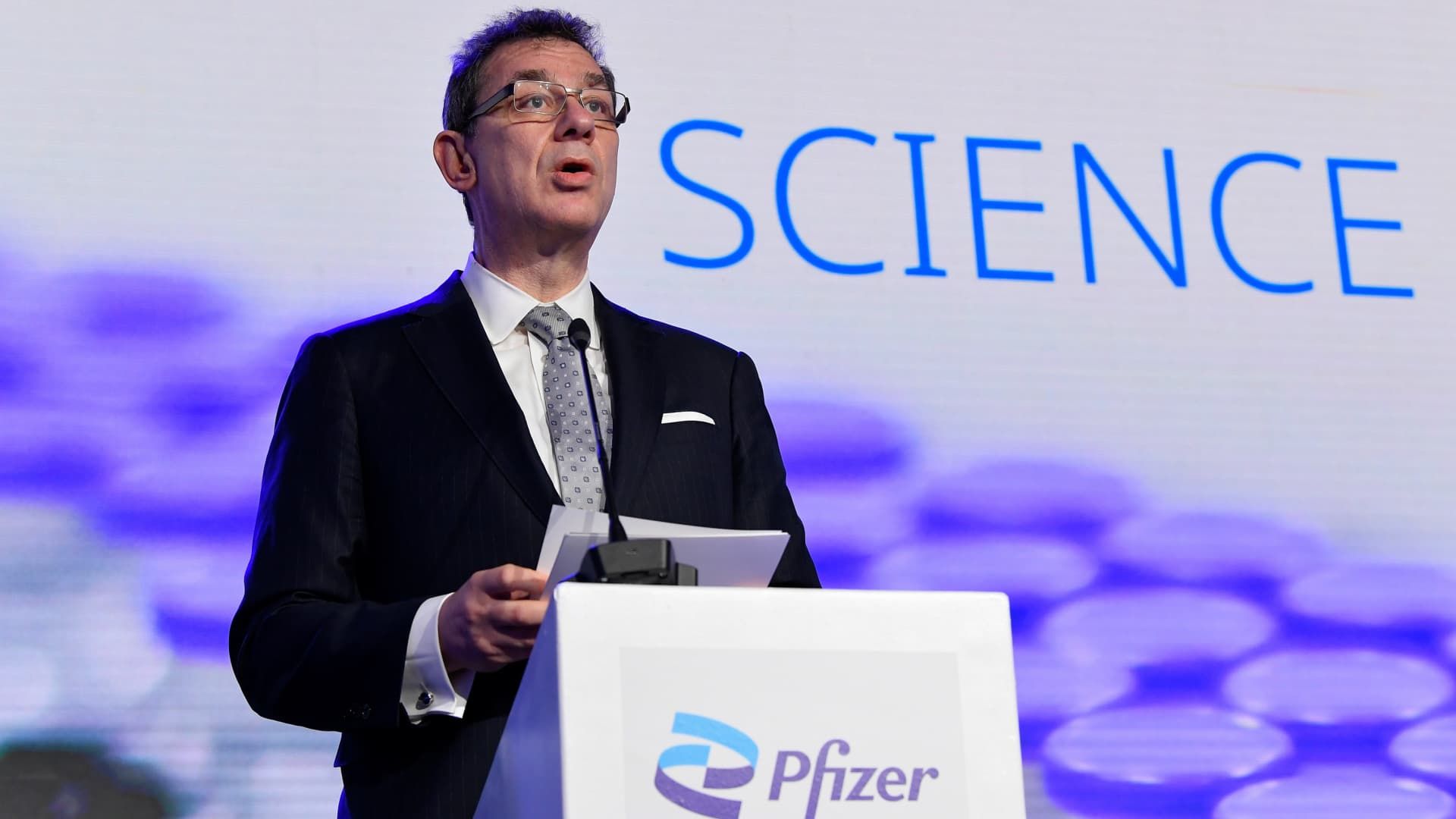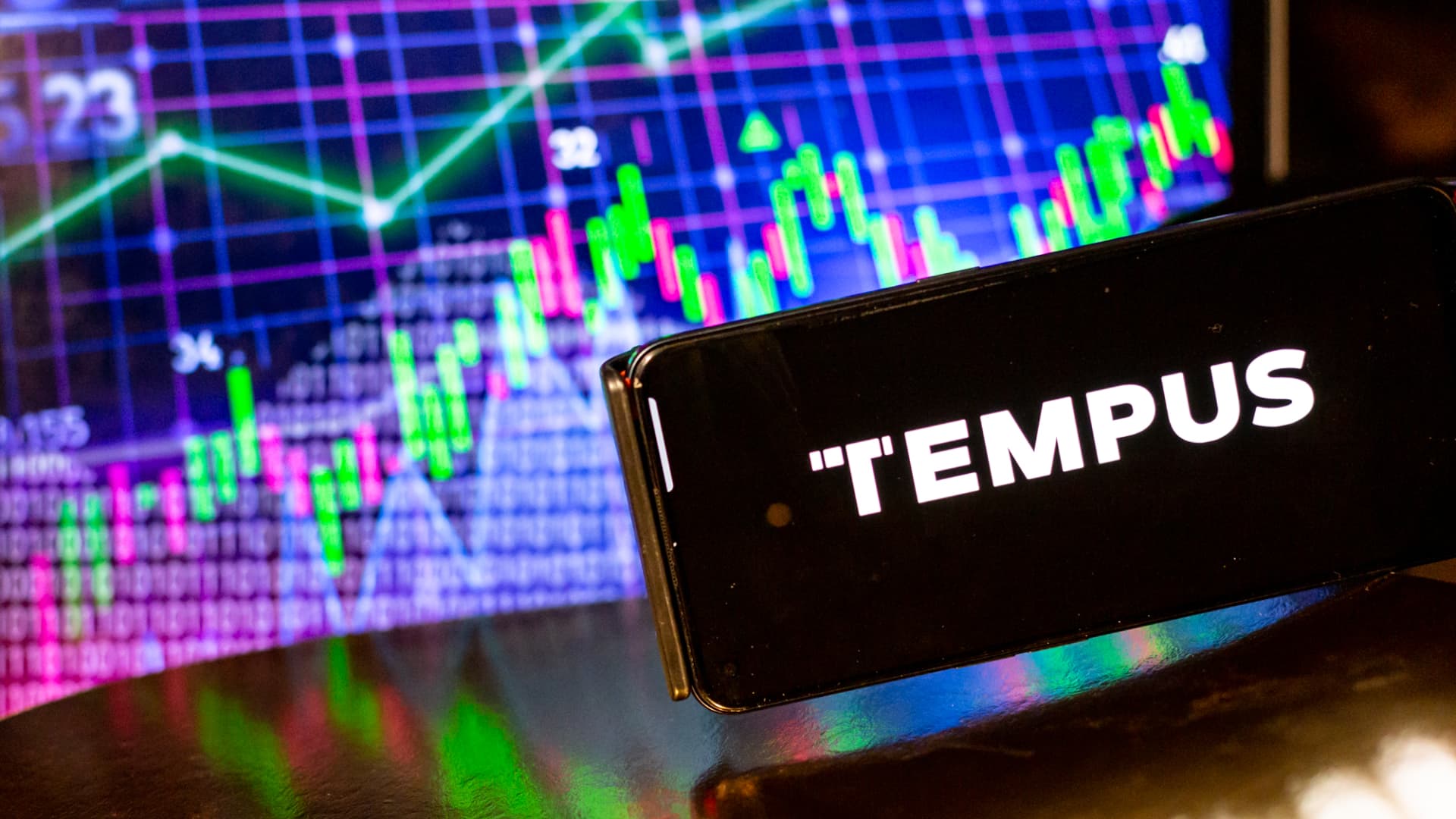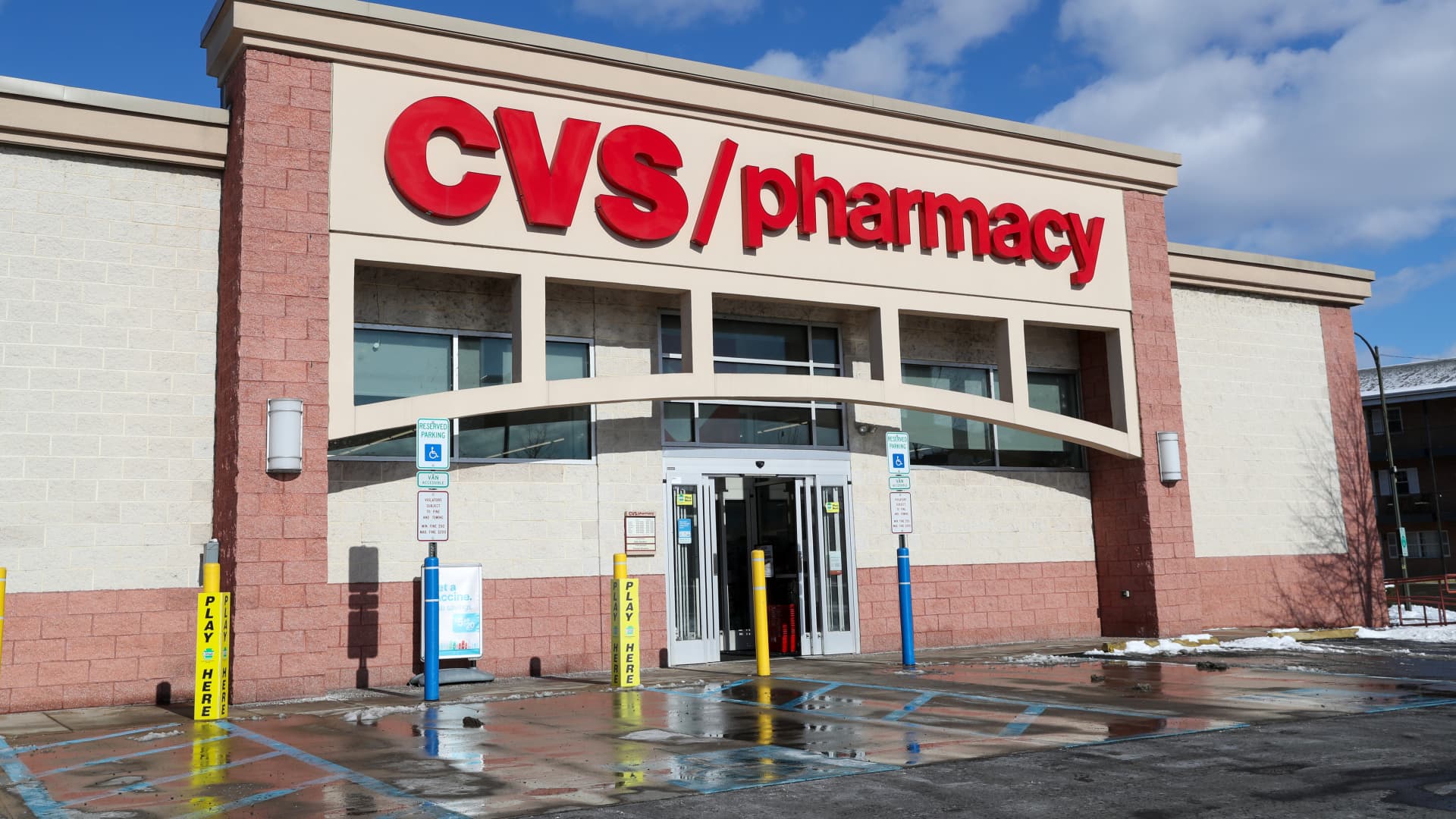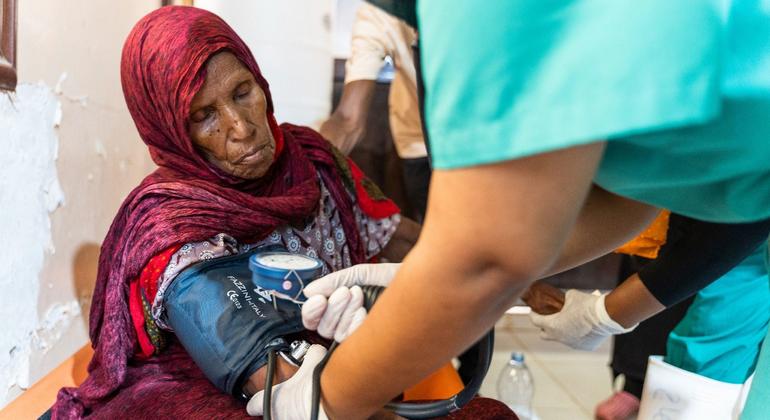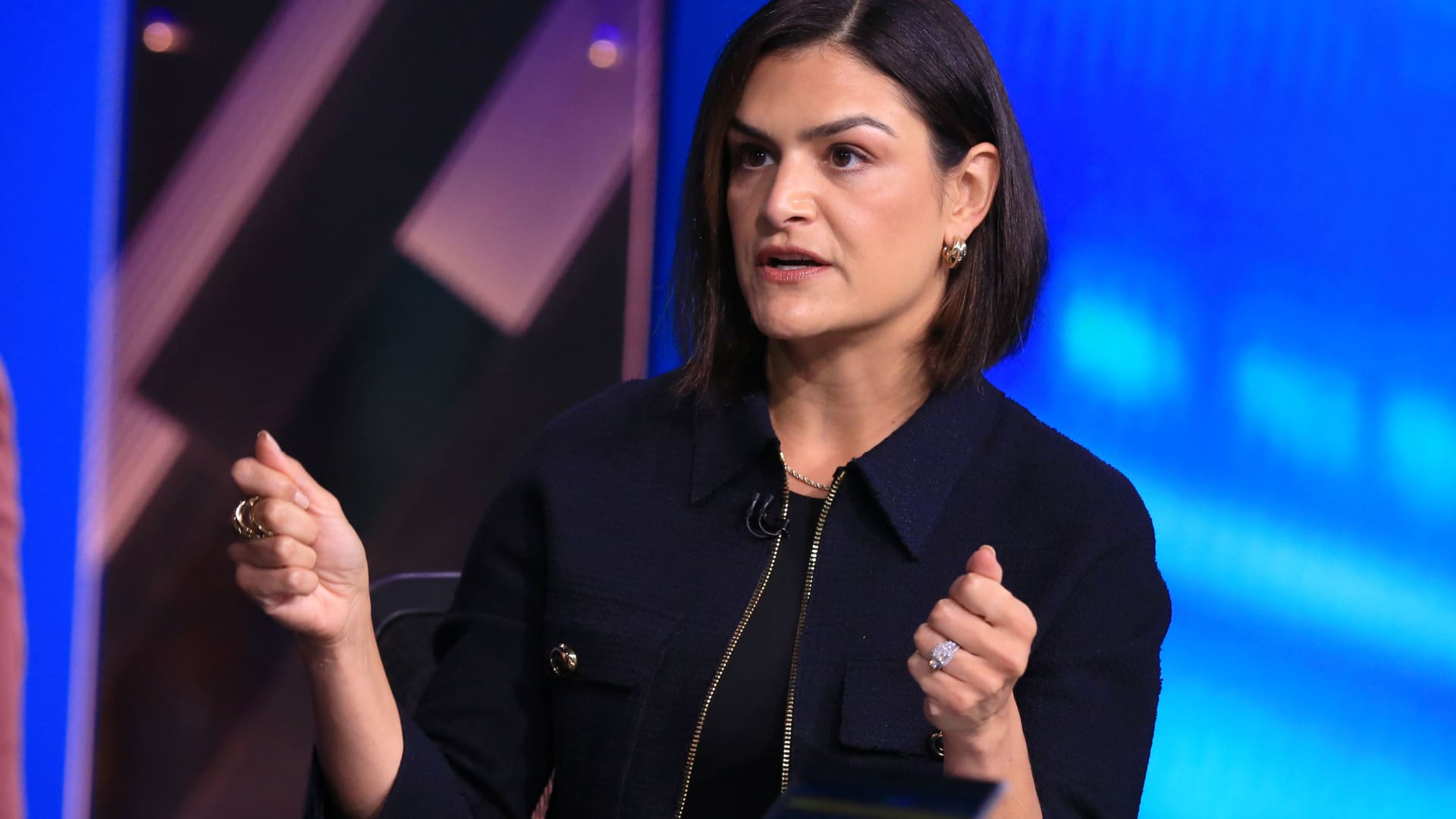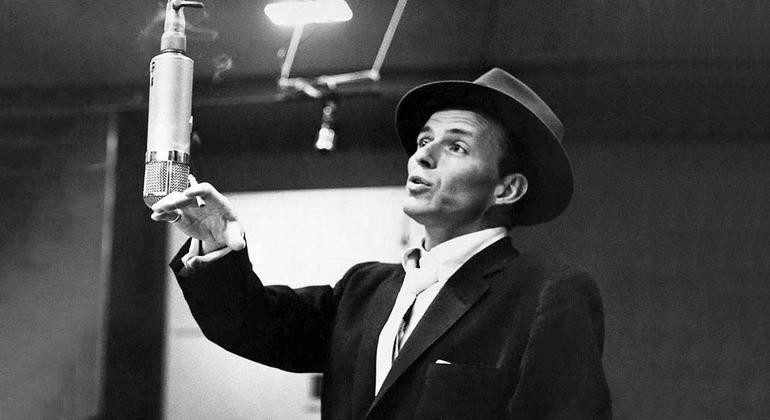Kena Betancur | Corbis News | Getty Images
Pfizer on Tuesday reported second-quarter revenue and adjusted earnings that beat expectations and raised its full-year outlook, benefiting from its sweeping cost-cutting program, better-than-expected sales of its Covid antiviral pill, Paxlovid, and strong sales of non-Covid products.
The company now expects to post adjusted earnings of $2.45 to $2.65 per share for the fiscal year, up from its prior guidance of $2.15 to $2.35 per share.
Pfizer also raised its revenue forecast to a range of $59.5 billion to $62.5 billion, up from a previous forecast of between $58.5 billion and $61.5 billion. That includes about $5 billion in expected revenue from its Covid vaccine and $3.5 billion from Paxlovid.
The pharmaceutical giant said its upward outlook reflects its strong performance in the first half of the year and its confidence in the “underlying strength” of its business. Notably, Pfizer on Tuesday posted its first quarter of revenue growth since the fourth quarter of 2022, when its Covid revenue peaked.
The results come as Pfizer is struggling to stabilize its business and regain favor with Wall Street after rapidly declining demand for its Covid products. Demand for its vaccine and Paxlovid plummeted and went commercial in the United States last year as the world emerged from the pandemic.
In October, as revenue dried up, Pfizer launched a sweeping cost-cutting campaign that aims to generate at least $4 billion in savings by the end of 2024. The company has since announced a separate multiyear plan to cut costs, with the first phase of the effort projected to generate $1.5 billion in savings by 2027.
Pfizer is also focusing on cancer treatment after its massive $43 billion acquisition of Seagen last year.
Here's what the company reported for the second quarter compared with what Wall Street expected, according to a survey of analysts by LSEG:
- Earnings per share: Adjusted 60 cents vs. expected 46 cents.
- Revenue: $13.28 billion versus the expected $12.96 billion.
The company posted second-quarter net income of $41 million, or 1 cent per share. This compares with net income of $2.33 billion, or 41 cents per share, during the same period a year earlier. Excluding certain items, the company posted earnings per share of 60 cents for the quarter.
Pfizer posted revenue of $13.28 billion in the second quarter, up 2% from the same period a year earlier.
The company highlighted growth in acquired drugs, recently launched treatments and other key products, which helped offset falling sales in its Covid business.
Paxlovid generated $251 million in sales during the quarter, up 76% from the same period last year. That growth was primarily due to increased infection rates and demand in certain international markets during the quarter and favorable comparisons to the prior-year period, when Paxlovid had no sales in the United States prior to its transition to the commercial market.
The segment's results were higher than the $206.1 million in sales expected by analysts, according to estimates compiled by StreetAccount.
The company's Covid vaccine generated revenue of $195 million, down 87% from the same period last year.
The decline was driven by lower contract deliveries and demand in international markets, and reflects the seasonality of vaccine demand.
Analysts had expected sales of $195 million for the drug, according to StreetAccount.
Covid-free product growth
Excluding Covid products, Pfizer said second-quarter revenue rose 14% on an operational basis.
The company said the growth was driven in part by Seagen's approved cancer products, which generated $845 million in revenue during the quarter. That includes $394 million from a targeted bladder cancer treatment called Padcev and $279 million from Adectris, another drug that targets certain lymphomas.
Pfizer completed its acquisition of Seagen in December.
Revenue was also boosted by strong sales of Pfizer's Vyndaqel drugs, which are used to treat a certain type of cardiomyopathy, a disease of the heart muscle. Those drugs posted sales of $1.32 billion, up 69% from the second quarter of 2023.
Analysts had expected the drug group to gross $1.1 billion in the quarter, according to StreetAccount estimates.
Pfizer said its blood thinner Eliquis, which is co-marketed by Bristol Myers Squibb, also helped drive revenue growth during the period. The drug posted $1.88 billion in revenue during the quarter, up 7% from the same period a year earlier.
This is in line with analysts' expectations, according to StreetAccount.
However, Eliquis sales could take a hit in 2026, when a new price for the drug for certain Medicare patients takes effect following negotiations with the federal government. Those pricing negotiations, a key provision of President Joe Biden’s Inflation Reduction Act, are set to end in early August.
Meanwhile, Pfizer's vaccine against respiratory syncytial virus (RSV) generated $56 million in revenue. The shot, known as Abrysvo, was set to go on the market in the third quarter of 2023 for older people and pregnant women who can pass protection on to their fetuses.
The injection fell short of analysts' estimates of $89 million in revenue for the second quarter, according to StreetAccount.

